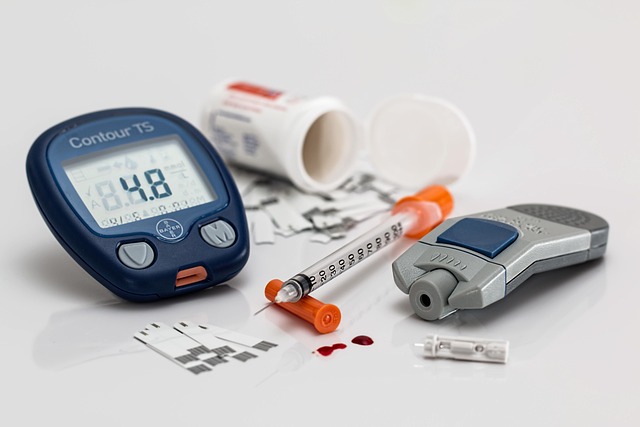Vitamin B12 deficiency, affecting diverse demographics in the UK, often goes undiagnosed due to its varied causes—insufficient intake, malabsorption, or blood disorders. Regular cholesterol blood tests typically miss this deficiency, emphasizing the need for targeted screening. Key symptoms include fatigue, memory issues, and tingling sensations. At-risk groups include older adults, vegans, and individuals with conditions like pernicious anemia or gastrointestinal surgeries. Test results indicate that homocysteine and folate levels should be measured together; a level below 180 pg/mL is generally considered deficient. Prompt action based on test results is crucial to manage symptoms and prevent complications, involving dietary changes, supplements, or severe cases requiring injections.
In the UK, vitamin B12 deficiency testing via blood tests has become increasingly important due to its potential impact on overall health. This comprehensive guide explores the significance of identifying B12 deficiency, particularly as symptoms can often be subtle or mistaken for other conditions. We delve into how blood tests, similar to cholesterol checks, play a crucial role in diagnosis. Learn about interpreting results and the steps to take after a B12 blood test to ensure optimal well-being.
- Understanding Vitamin B12 Deficiency: Symptoms and Risks
- The Role of Blood Tests in Diagnosing Deficiency
- Interpreting Results and Next Steps After a B12 Blood Test
Understanding Vitamin B12 Deficiency: Symptoms and Risks
Vitamin B12 deficiency is a growing concern, affecting individuals across various demographics in the UK. Understanding this condition is paramount, as it can lead to a range of symptoms that may go unnoticed or misdiagnosed. Deficiency occurs when the body doesn’t have enough vitamin B12, often due to inadequate intake, malabsorption, or blood disorders. This essential nutrient plays a vital role in maintaining healthy red blood cells and nerve function.
Those at risk include older adults, people with certain medical conditions like pernicious anaemia, individuals on vegan diets, and those who have had gastrointestinal surgeries. Symptoms can vary but may include fatigue, weakness, memory issues, tingling or numbness in hands and feet, difficulty balancing, and shortness of breath. In severe cases, it can cause neurological problems and even cognitive decline. Regular cholesterol blood tests in the UK often don’t detect B12 deficiency, making targeted screening crucial for early intervention and treatment to prevent potential health risks.
The Role of Blood Tests in Diagnosing Deficiency
In diagnosing vitamin B12 deficiency, blood tests play a pivotal role by providing crucial insights into an individual’s nutritional status. These tests measure the levels of homocysteine and folate in the blood, both of which are indicators of B12 function. Elevated homocysteine levels suggest a deficiency as this amino acid is metabolised with the help of vitamin B12. Similarly, low folate levels can point towards an underlying B12 issue, as the two vitamins work synergistically. In the UK, healthcare professionals often recommend a Cholesterol Blood Test alongside these to assess overall health and identify potential red flags related to nutrition. Accurate diagnosis is enabled by combining these test results, helping medical experts tailor treatment plans effectively.
Interpreting Results and Next Steps After a B12 Blood Test
After your Vitamin B12 blood test, understanding the results is a crucial step to take. The reference range for B12 levels can vary slightly between laboratories, but generally, a result below 180 pg/mL (picograms per millilitre) is considered deficient. If your test indicates a low B12 level, it could be an early sign of deficiency, especially if you’re at risk due to age, diet, or certain medical conditions.
The next steps involve addressing the deficiency. This may include dietary changes, such as incorporating more B12-rich foods or considering supplements. Your healthcare professional might also recommend further tests to identify any underlying causes, like issues with absorption or autoimmune disorders. In some cases, injections of Vitamin B12 may be prescribed to quickly raise your levels, particularly if deficiency is severe. Remember, prompt action based on test results can help manage symptoms and prevent potential complications associated with B12 deficiency.
Vitamin B12 deficiency, often overlooked, can lead to significant health issues. Blood tests, like cholesterol blood test UK services, play a vital role in early detection and treatment. By understanding symptoms, interpreting test results, and taking appropriate steps, individuals can manage or prevent this deficiency. Regular screening is key to maintaining overall well-being.
